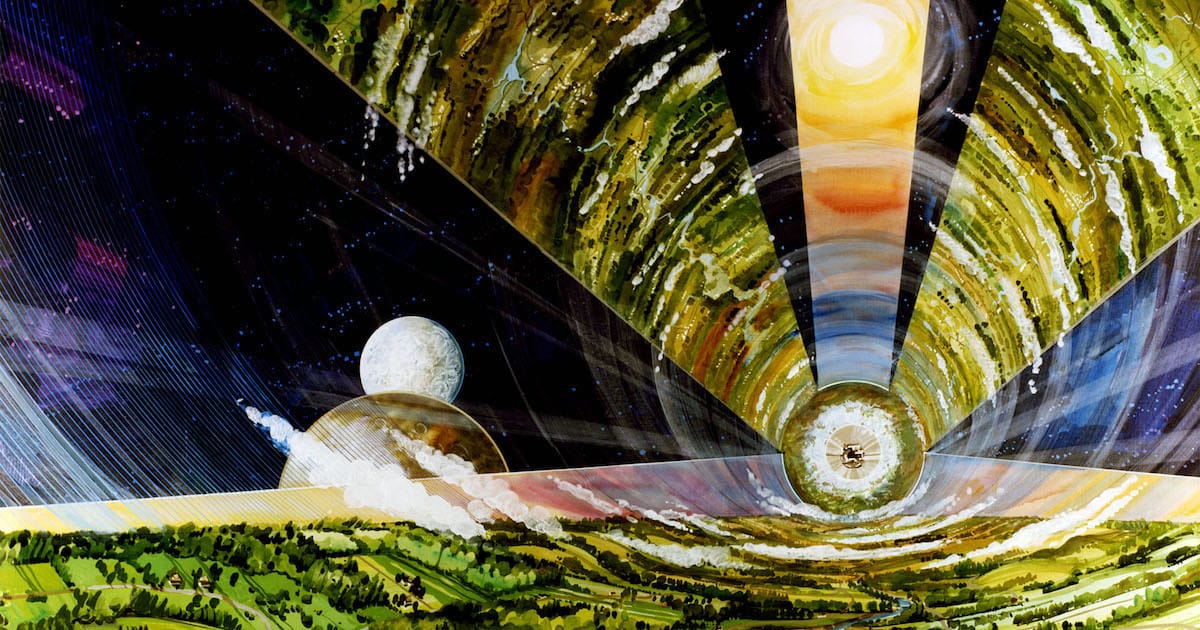

So-called O’Neill cylinders are an early concept for a ‘living’ space habitat. They are an example of how Gaian thinking infuses science fiction.
Welcome back.
As a journalist, I pride myself on reporting stories thoroughly. (Sometimes too thoroughly.) But I am not an all-knowing AI, which means I sometimes miss something important. When that happens, I like to set the record straight.
Today’s post is an attempt to set the record straight about a theory on the nature of the Earth. The so-called Gaia Hypothesis inspired countless scientists, as well as science fiction writers, to think of our planet like a vast, self-regulating superorganism. But while the idea has many merits, it also has a dark side.
Read on to learn about how oil money haunts Gaia, and why that matters today.
— Maddie

How oil money haunts the Gaia Hypothesis
Earlier this year, I published a piece on the forgotten history of the 1990 video game Sim Earth, a planet simulator that pays homage to the Gaia Hypothesis—the idea that Earth’s oceans, atmosphere, rocks, and life forms together create a vast, self-regulating system. My reporting showed how Maxis co-founder Will Wright struck up a connection with James Lovelock, the scientist who developed the Gaia Hypothesis in collaboration with evolutionary biologist Lynn Margulis. Lovelock went on to become an advisor for Sim Earth and one of the game’s key boosters.
But I missed part of the story.
What I didn’t know was that Lovelock’s science was bankrolled, in part, by the oil industry.
Lovelock is often remembered for the work he did at NASA, developing instruments for detecting life on other worlds. But from the mid-1960s through the early 80s, Lovelock also worked for Royal Dutch Shell. Shell hired Lovelock to advise the company on how fossil fuels were affecting Earth’s atmosphere, before funding Lovelock’s research on how ocean algae do the same thing. This Shell-sponsored research, which occurred while Lovelock was developing the Gaia hypothesis, supported one of its key insights—that Earth’s life forms control its climate.
It’s an idea that helped launch an entire field of research on so-called climate feedback mechanisms, while inspiring fiction writers to imagine self-sustaining space habitats and planetary consciousnesses. But Lovelock’s insight was also exploited by corporations seeking to diminish their own role in affecting Earth’s climate.
“Gaia created the conditions for a denialism that derived its power by denying the uniqueness of humans’ capacity to permanently alter the Earth,” historian of science Leah Aronowsky wrote in a 2021 article on the Lovelock-Shell connection.
Join the Important Membership to read the rest.
Members get access to every essay from The Science of Fiction -- and everything else we make, too.
Start Your 30 Day Free TrialBenefits include:
- Your choice of our critically-acclaimed newsletters, essays, and podcasts
- A welcome sticker pack!
- Ad-free everything
- Your WCID profile: Track and favorite your actions while you connect with other Shit Givers
- Vibe Check: Our news homepage, curated daily just for you. Never doomscroll again
- Lifetime thanks for directly supporting our work



